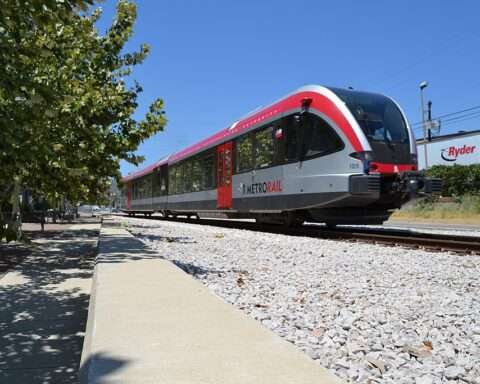This story was originally published in the Government Contracting Pipeline newsletter from Strategic Partnerships, Inc. To have the latest government contracting news stories from across the country delivered straight to your inbox, click here to subscribe.
New York City (NYC) will receive $15 million from the U.S. Department of Transportation (USDOT) to build out the nation’s largest curbside electric vehicle (EV) charging program. The funds came from USDOT’s $2.5 billion Charging and Fueling Infrastructure (CFI) program.
The city will use the funds to install 600 Level 2 chargers across NYC’s five boroughs. Plans also include building 31 solar-powered charging ports at eight NYC Department of Parks and Recreation (Parks) around the city. These ports will ensure that EVs – particularly taxi and rideshare services – will have quick and easy access to chargers in low-income, disadvantaged areas of the city.
The emphasis on transitioning these types of ridership programs to clean energy aligns with NYC’s objectives to decarbonize the transportation sector. In October 2023, NYC committed to achieving a ridership fleet exclusively composed of vehicles that are either wheelchair accessible or zero-emission by 2030. The Green Rides program will ensure the city leads the nation as the first to have a complete fleet that complies with these accessibility and clean energy standards.
The EV charging port expansion builds on the city’s existing curbside EV charging pilot that brought 100 chargers to NYC streets. The initiative has been a resounding success, having the highest utilization rates out of any other comparable system in the nation. The city expects its decarbonization initiatives to remove approximately 8,000 tons of greenhouse gas (GHG) emission annually.
The funds are the latest federal investment in NYC’s goals to foster sustainable and equitable infrastructure. To date, the city’s Federal Infrastructure Funding Task Force has directed more than $850 million in grant awards to support city projects and programs. NYC has committed significant investments to support affordable, clean transit options, including improving subway fare affordability, building 40 miles of protected bike infrastructure and supporting the city’s ferry system.
The CFI and National Electric Vehicle Infrastructure (NEVI) programs joint released $521 million out of its $2.5 billion allocation to support EV charging and alternative-fueling infrastructure projects across 29 states, eight Tribes and the District of Columbia. The projects will deploy more than 9,200 EV charging ports along the nation’s major highways, interstates and roadways.













